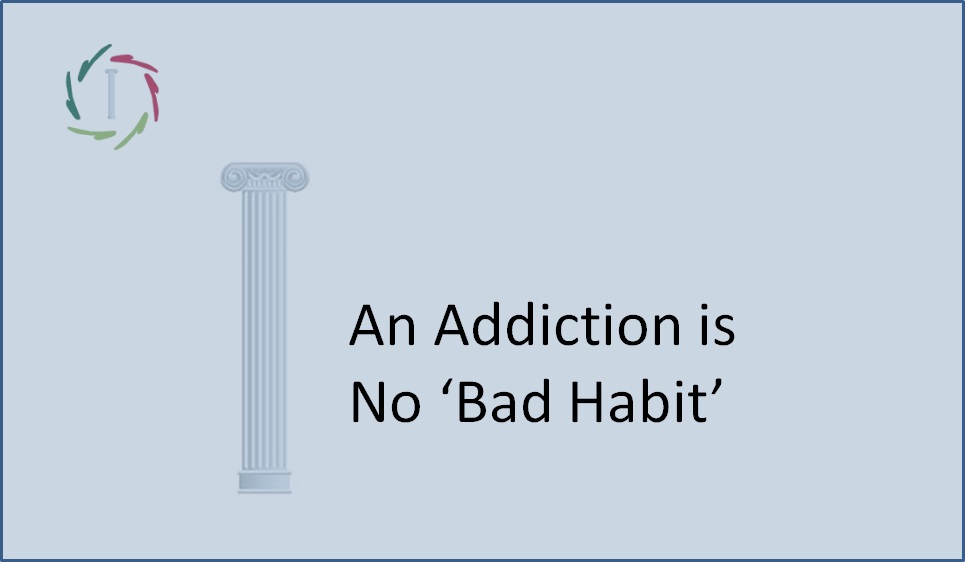The War on Drugs Inner Dissociation

The war on (hard) drugs is a failed war because drugs are not the core of the problem by themselves. The latter lies in-depth ― not only in the user but also in the environment, the broad culture, and the immaturity of the human being.
Consciousness and proneness to addiction
Profoundly, they are about the same mechanism: self-perpetuating mental-neuronal patterns (MNPs) ― see e-book 3. These enable one to hold on to mental content persistently and consistently enough for it to functionally become a ‘mental concept’ or ‘mental construct’ that can reach conscious awareness.
Without this self-perpetuation, we would have no consciousness. With little self-perpetuation, we would have little consciousness, although there would still be the possibility of addiction. For instance, rats can be addicted to opioids to the point they die by forgetting to eat.
Unfortunately, in the case of human complex mentality, the self-perpetuation of MNPs quickly overshoots toward inner dissociation, making the person prone to ‘always more and never enough.’ In this vein, self-perpetuation is central to many complex forms of addiction. The addict is drawn into this even if he knows and wants better. Once the addiction has taken hold, it’s much more powerful than he imagined – or others imagine – because it is central to thinking itself. This is why the addictive experience can readily feel ‘familiar’ to the addict ― like a safely coming home even before the drug is taken.
It’s hard to think yourself out of something that has taken your thinking as a hostage. However, waging war on consciousness itself will never do.
Intertwined with other MNPs
The drug-related MNPs are so profoundly and multiply intertwined with other MNPs that it’s impossible to take them out in any clean way. Compare it to an aggressive cancer embedded with many slings into surrounding tissue.
To the addict, trying to draw or cut the addiction out just like that is highly hurtful ― making him think even more that the addiction is for life. Withdrawal can feel like mentally dying. It makes him believe that the addiction has taken over all control, that he himself has become a robot who can only obey.
However, that is not the case.
Delving very deep
Herein, we encounter the inner dissociation aspect, which gets power from the person, the environment, and even geopolitical dissociation. One needs to go even deeper to counter this with something more powerful.
Making this journey together with a group can help. However, not from the idea that the group is necessary and that one would be helpless without the group. Even in a group setting, the depth is eventually effective ― not the experiences but the profound experiences.
Transforming the mental cancer
This can only be done sustainably from the inside out. No addict will ever be helped straightforwardly by something/someone on the outside. If the addict does feel helped, it is from what this outside means to him inside ― like any symbolic action.
This is: what is deeply meaningful to the addict. Sadly, the addiction itself frequently makes it more difficult to reach. The addiction can destroy what lies deep inside ― making inner dissociation more powerful.
The challenge becomes bigger through this, while the principle remains the same:
Get deep, to beneath the dissociation.
From there, let it grow, even when the growing gets tough. It is the only durable way.
Any war on drugs that counters this is self-defeating.


